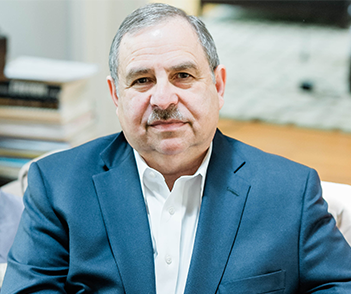The treatment of end stage kidney disease (ESKD) is complex and resource intensive. The patient population is among the most fragile, with multiple comorbid conditions that complicate kidney replacement therapy. Across the world, Fresenius Medical Care must meet this challenge of regions and locales with widely differing financial resources, languages, healthcare systems, and information technology maturity. A core function of the Global Medical Office (GMO) is to identify opportunities for improvement of care. To that end, the GMO has initiated a global program to understand regional factors affecting quality performance and reporting, identify successes, and organize for further improvement.
KEY PERFORMANCE INDICATORS
Key performance indicators of quality in ESKD care are made public by a variety of authorities, including Kidney Disease: Improving Global Outcomes (KDIGO), the Kidney Disease Outcomes Quality Initiative (KDOQI), the Centers for Medicare and Medicaid Services (CMS), the European Dialysis and Transplant Association (EDTA), and others. Within Fresenius Medical Care, there has been substantial progress in adopting uniform definitions of quality care. These are embodied in the clinical quality score (CQS) in the U.S. and the balanced scorecard (BSC) in the Asia Pacific (AP), Latin America (LA), and Europe, Middle East, and Africa (EMEA) regions. Included in both sets are considerations of patient experience.
While these have traditionally focused on measurement of intermediate outcomes (e.g., dialysis adequacy, hemoglobin levels, central venous catheter rates), increased attention is now being paid to patient-centered outcomes, a model of care that respects the patient’s experience, values, needs, and preferences in the planning, coordination, and delivery of care. Additionally, social determinants of health have significant influence on patient outcomes. These factors include access to and quality of healthcare and education, economic stability, neighborhood and environment, and the social and community context in which our patients live.
IMPACT OF SOCIAL DETERMINANTS OF HEALTH
Access to healthcare has a profound influence on health and well-being. The availability of care, the frequency and duration of dialysis treatment, and therapy for the complications associated with ESKD are determined by payment models that vary greatly around the world. Even when universal healthcare coverage is available, the included services can vary widely. Mexico, for example, provides funded dialysis through the Mexico Social Security Institute but limits treatment time to three hours. In India, the absence of affordable insurance may cause patients to elect to only dialyze twice a week. Social and political policies in South Africa limit public payment for dialysis to those suitable for transplant. Similar disparities exist in payment for treatment of associated conditions like anemia and metabolic bone disease.
In response to these restrictions, Fresenius Medical Care encourages longer treatments, the use of high flux dialyzers, and hemodiafiltration to maximize delivered dialysis. Conversations are held with payment authorities to emphasize the need for adequate treatment. To further reduce the cost of care, less complicated but effective dialysis systems are in development. Attention to fluid removal, guided by Fresenius Medical Care devices like the Body Composition Monitor, can reduce hospitalization for volume overload and lessen the impact of untreated anemia.
Trained nephrologists are essential to the provision of excellent care, and Fresenius Medical Care contracts with or employs these qualified experts as medical directors in most countries. In some regions, limited training in the specialty makes this more challenging, with the number of nephrologists per 1 million population ranging from 13 in Thailand to 45 in Italy. The best qualified nephrologists continue to be identified and recruited to supervise care directly.
DATA ANALYTICS AND QUALITY IMPROVEMENT
The components required to monitor and improve quality include common standards, uniform definition of patient inclusion, robust data collection, sophisticated analytics, and effective communication of outcomes. Like dialysis technology itself, these capabilities have evolved over time. The variable evolution of these capabilities in different countries can pose a challenge to quality assessment and comparison. Fresenius Medical Care continues to make progress in the use of electronic medical records (EMR) in all regions. This includes EuCliD and myCompanion (EMEA, AP, LA) and eCube Clinicals, PatientHub, and PhysicianHub (U.S.).
Disparities in interfaces between automated dialysis machines and databases, as well as disparities in the ability to download laboratory results, still exist but are rapidly declining. Currently the performance data generated by these systems is used to direct quality improvement activities specific to each region and country. In the next year, it will also serve as the basis for uniform education and training in Clinical Quality Improvement (CQI) for all medical directors and nursing leaders.
To take advantage of the enormous data accumulated through Fresenius Medical Care’s IT systems, clinical data analytics capability has been aggregated and includes experts across all regions. Not only are outcomes evaluated to guide quality improvement, but predictive modeling is being adopted to anticipate and avoid events like hospitalization and vascular access failure. The combined impact of consistent data collection expert analysis was demonstrated in a recent publication describing improved patient survival utilizing the BSC in NephroCare in Italy.1
MANAGING QUALITY PERFORMANCE EXPECTATIONS
Given the disparities in resources and regional maturity, it is logical to ask how quality performance should be measured. The answer lies in a sensitive assessment of each country’s current ability to achieve the internationally recognized key performance indicators embedded within all Fresenius Medical Care clinical systems and a determination of a path to incremental change. As an example, in places where twice weekly dialysis is common, we should expect data collection to be complete, the calculation of dialysis adequacy to be appropriate to the actual frequency of dialysis, and all modifiable aspects of the prescription to be optimized. This path requires completion of electronic medical record and interface deployments, recruitment and education of the best nephrologists, consistent appraisal of business priorities, uniform training in CQI, and open communication and support among regions. The GMO is committed to this course and will continue to advance the global alignment toward quality improvement and sustainable patient-centered care in collaboration with internal and external partners.
Meet The Experts
References
- Garbelli M, Ion Titapiccolo J, Bellocchio F, et al. Prolonged patient survival after implementation of a continuous quality improvement programme empowered by digital transformation in a large dialysis network. Nephrol Dial Transplant 2021;1-8. doi: 10.1093/ndt/gfab160.

